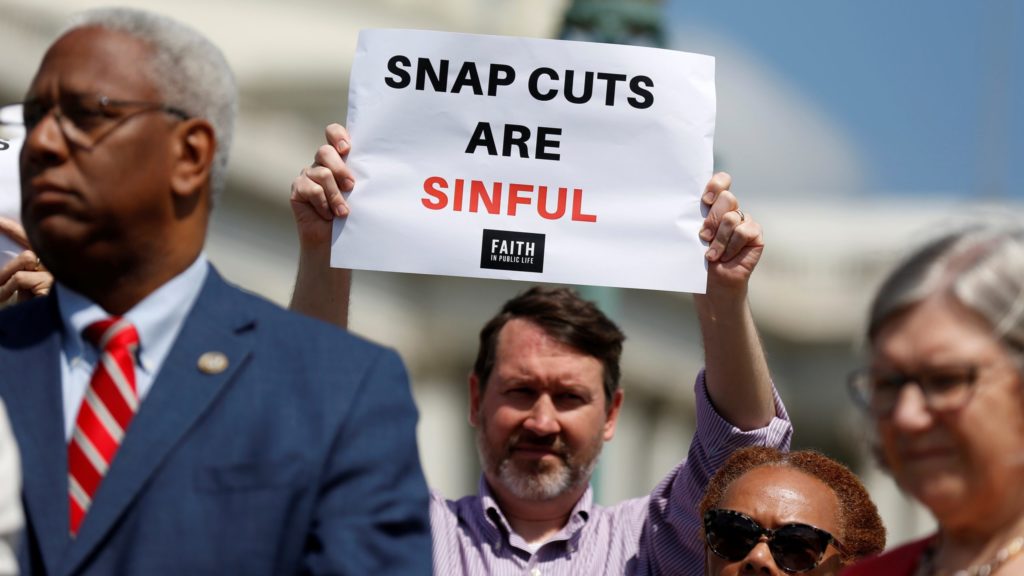A pandemic-era program that provided extra payments to Americans who qualify for food stamps ended March 1, causing concern for some Catholic advocates about how low-income individuals and families will put food on the table.
During the coronavirus pandemic, Congress permitted states to issue extra money to food stamp recipients under the Supplemental Nutrition Assistance Program, or SNAP, a move advocates said would help low-income families who lost their jobs amid the crisis. But the emergency response was temporary.
While 18 states had previously ended the additional SNAP benefits, 32 states, the District of Columbia, and U.S. territories did so March 1. The average eligible household will lose $95 a month for groceries, according to an analysis by the Center on Budget and Policy Priorities.
The program ended at a time when the prices of many common grocery items remain high due to inflation that has reduced the purchasing power of American families, with the price of basics such as eggs or wheat driving up other costs.
Lizanne Hagedorn, executive director of Nutritional Development Services for the Archdiocese of Philadelphia, told OSV News that they saw "incredible need" brought about by the pandemic, through sudden unemployment, illness, or even death in the family.
"I anticipate a lot of anxiousness and anxiety, especially in families," Hagedorn said, as the program ends.
David Stier, the archdiocese's assistant director of community relations for Nutritional Development Services, concurred with his colleague, telling OSV News, "The pandemic taught us in a pretty strong way how interdependent everything is, economic systems and policy."
"People are suffering and this has major impacts," Stier said. "I mean, think of children who do not have enough to eat. How does that affect their health? How does that affect their cognitive development? How does that affect their education and success in life?"
Jane Stenson, vice president for food and nutrition and poverty reduction strategies at Catholic Charities USA, told OSV News that the Department of Agriculture, which manages SNAP, "stepped up in a major way" to help those facing a loss of income or other difficulties during the pandemic.
"They really provided enormous support to people in those early days," Stenson said, noting that many lost jobs unexpectedly, especially those working in the service industry.
Stensen said that while the increased SNAP benefits were intended to be a temporary boost in a time of crisis, "we still had food insecurity pre-COVID."
"The government responded to COVID, but people were struggling before," she said.
A majority of SNAP recipients, Stenson said, "are households made up of children, seniors, and the disabled." The program gives recipients a level of autonomy and the ability to make their own grocery purchases, she said, rather than receiving what is available at a food bank, which may be unfamiliar or not useful in individual circumstances.
The nutrition experts encouraged Catholics to check in with their parishes or dioceses about ways to help those impacted by food insecurity.

